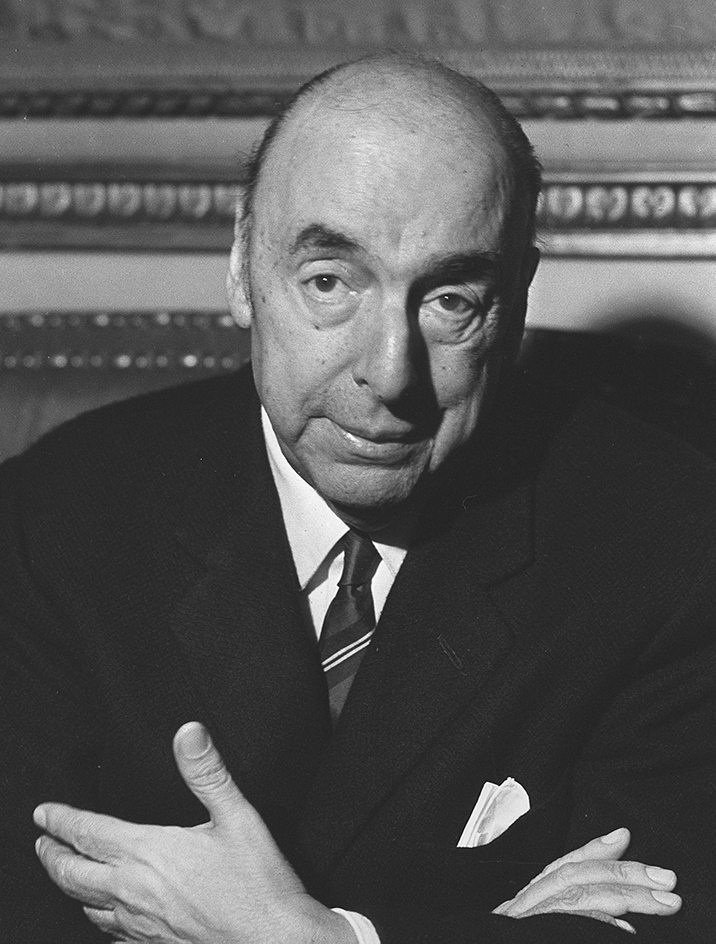Neruda, Pablo, << nay ROOD uh, PAH bloh >> (1904-1973), a Chilean poet, won the 1971 Nobel Prize in literature. Because he continually changed his approach to poetry, Neruda’s work cannot be easily characterized. He was one of the great adapters of surrealism in Spanish-language verse, producing obscure, violent imagery and conveying a sense of universal chaos (see Surrealism). Neruda also experimented with making poetic expression as direct and simple as possible.

Neruda was born on July 12, 1904, in Perral, Chile. His real name was Neftalí Reyes Basoalto. He first gained recognition with the lyrical and romantic Twenty Love Poems and a Song of Despair (1924). The two parts of Residence on Earth contain his poetry from 1925 to 1935. They show the poet at his most surrealistic. Although not all their symbols are comprehensible, their vision of disintegration and despair are unmistakable. Neruda showed a new desire to make art speak for oppressed members of society in Third Residence (1947) and General Song (1950). His most playful and eloquent poems appear in Elemental Odes (1954). The most comprehensive collection of Neruda’s poems is Poetry of Pablo Neruda (2003). In 2016, 21 previously unpublished poems written by Neruda from the early 1950’s until his death were published as Then Come Back: The Lost Neruda. Neruda died on Sept. 23, 1973.
